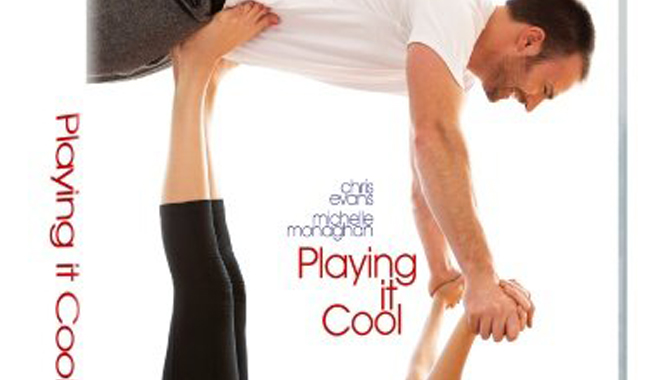
Playing It Cool Review
 There are Romcoms and there are Romcoms. The first variety is the usual, bog-standard version of the Boy meets Girl tale of which there are, let’s face it, far too many. Playing it Cool, for the most part, is of the second variety. Slightly quirkier and more refreshing than average, although not entirely successful at offering an original take on the traditional tale.
There are Romcoms and there are Romcoms. The first variety is the usual, bog-standard version of the Boy meets Girl tale of which there are, let’s face it, far too many. Playing it Cool, for the most part, is of the second variety. Slightly quirkier and more refreshing than average, although not entirely successful at offering an original take on the traditional tale.
So this time, “Boy” is the film’s voice-over narrator (Chris Evans), a scriptwriter bribed by his agent into writing – can you guess? – a Romcom. “Boy” isn’t happy about that. His genre of choice is action, he has never been in love and he doesn’t believe in it either. This changes instantly when he meets “Girl” or “Her” (Michelle Monaghan). Unfortunately, she has a boyfriend – a posh-sounding Englishman only referred to as “Stuffy” (Ioan Gruffudd). Determined not to make a fool of himself (except, of course, yeah he will) “he” agrees with “her” to “just be friends” when it’s clear to both that that’s neither going to work nor actually the plan. But no matter, people deceive themselves in this way all the time and so the characters find themselves falling for each other despite their best-laid plans, his inability to fall in love, and her stuffy boyfriend. While he gets to weary his strange group of intentionally stock-character friends (all writers of some sort) by wallowing in self-pity and pining over her, exactly how she deals with the situation doesn’t become clear unless it directly affects his narration. So far, so obvious, so traditionally Romcom. However, by drawing attention to its male perspective by means of “his” voice-over, Playing it Cool more or less manages to keep audiences aware that what we see is the truth only in a world according to “him”. And it is clear that he isn’t the most reliable of narrators but a master of fiction and the telling of tall tales.
Playing it Cool is very aware of most of the clichés of its chosen genre and, rather than trying to eschew or circumvent them, rubs them in with gusto. That doesn’t mean that the film doesn’t also fall into some familiar Romcom traps. The female characters in particular are so clearly imagined by men (in this case scriptwriters Chris Shafer and Paul Vicknair) that none of them are allowed to transcend the roles of love interest or rejected former lover. As the narrator’s best friend says to him at one point: this story is only about one person – “him” and so women as they actually are seem to be of little interest. Still, one cannot help but wish that the writers had put a little more effort into subverting that particular generic flaw rather than just pass it off so easily. It doesn’t help, either, that during certain moments, it seem as if Shafer and Vicknair either could not decide whether they were writing a traditional Romcom (of the first variety) after all, or if they just chickened out of breaking genre convention and audience expectation in the same way that (500) Days of Summer did. Still, the dialogue is actually quite witty and the scripts affords some good laughs.
What is perhaps most refreshing, is how Playing it Cool tells its story by visual means. It is full of stories-within-the-story and as Evan’s character imagines himself in the movies and novels the film references, director Justin Reardon has the characters step in and out of roles and genres, stories and sets, ranging from Chinese TV series to graphic novel. The result is that we see actors playing characters, imagining themselves as different characters. Bizarrely (but in a good way), the narrator’s heart is a character of its own, a chain-smoking Bogart-like figure hovering in the background. In another meta-dramatic twist, the characters keep discussing and second-guessing the conventions of the very genre they are in – complete with last-minute airport dashes and similar clichés that Evan’s narrator/writer is, in his own words, trying to “outrun”.
Playing it Cool’s playfulness and wit make up for many of its shortfalls. Evans in particular takes on his various parts with equal amounts of self-irony and earnestness. The film manages enough originality to take it outside the realm of all-too-familiar Romcoms into something that has serious potential. It is just a bit of a shame that it doesn’t quite dare to use that potential to its full extent.
Anne Korn
